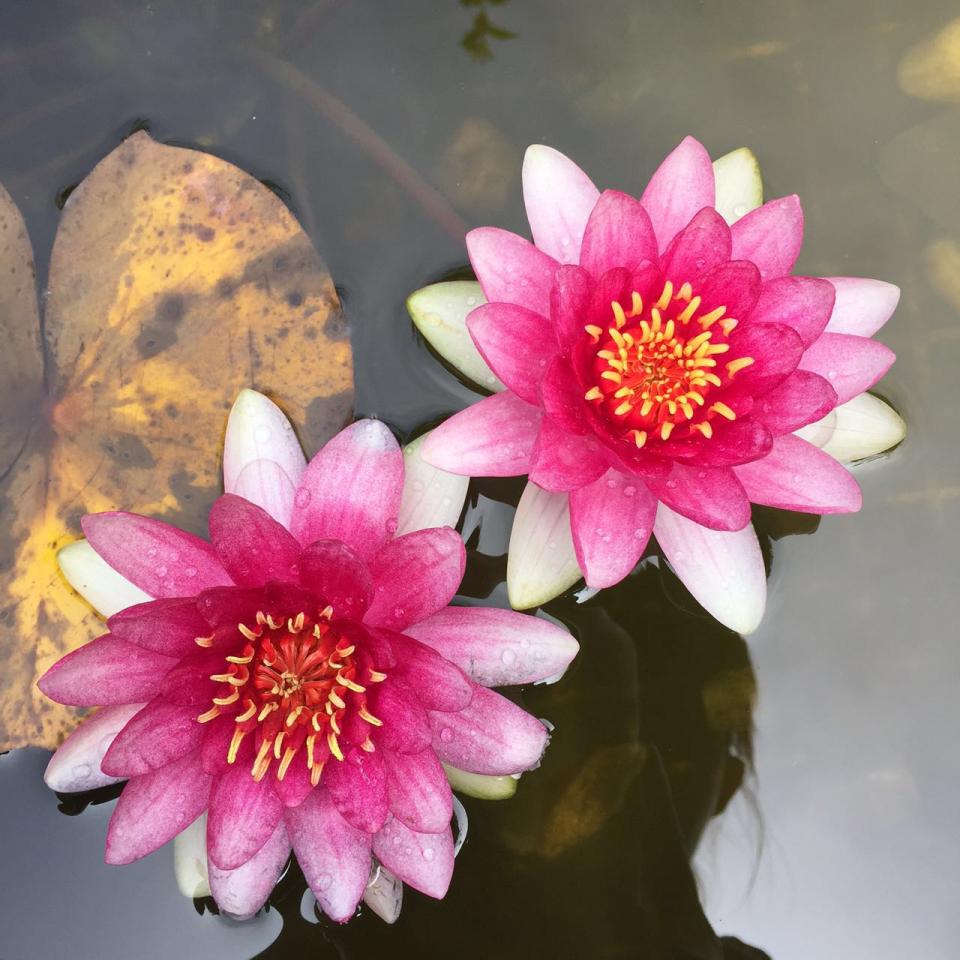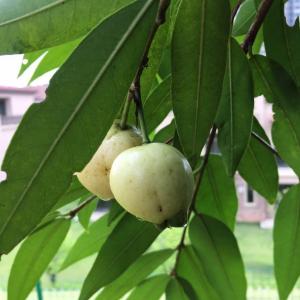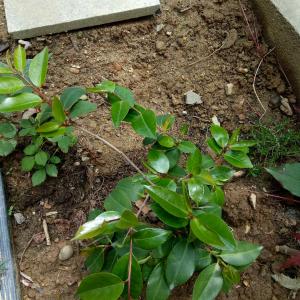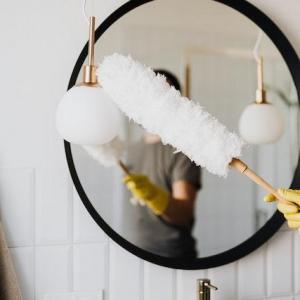Posts (175)
Zeev Kwan
2022-08-11

1. Regular But Gentle Brushing
Most individuals are aware that brushing twice a day is one of the most important habits for removing plaque and bacteria and maintaining clean teeth. However, brushing might only be effective if they employ the right method. The front, back, and top of each tooth should be thoroughly cleaned while brushing in small, circular motions. This process takes two to three minutes to finish. Avoid sawing motions that go back and forth. Too much force when brushing or using a toothbrush with bristles that are too rough can damage the gums and tooth enamel. Possible adverse effects include dental soreness, gum erosion, and irreparable harm to the protective enamel of teeth.2. Use Fluoride
Fluoride comes from the element fluorine, which is present in the soil. Due to the widespread belief that fluoride helps prevent cavities, it is widely found as an ingredient in toothpaste and mouthwash. Certain people may not use fluoride at all, and some dental products do not include it. Evidence suggests that a lack of fluoride can promote tooth decay even in those who normally take good care of their teeth. A recent study found that brushing and flossing do not prevent cavities when fluoride is not utilised.3. Avoid Sugary Foods
Dental cavities can result from eating sugar. Studies are highlighting how sugar contributes significantly to poor dental health outcomes. The obvious culprits are candies and pastries, but many processed foods also contain added sugar. The WHO urges consumers to limit their daily sugar intake to 10%Trusted Source of the total calories. According to the authors of a systematic review, lowering this to 5% would further lower the risk of cavities and other oral health problems. In place of starchy foods, the ADA recommends consuming a lot of fibre-rich fruits and vegetables as well as dairy products without added sugar.4. Use Floss Every Day
Flossing can be used to get rid of plaque and bacteria between teeth where a toothbrush can't reach. It can also assist in preventing bad breath by removing dirt and food that has become caught between the teeth. The majority of dental professionals advise gently guiding the floss up to the gum line, then encircling the tooth's side while moving it up and down. It's important to avoid snapping the floss up and down between the teeth because doing so can hurt and will make plaque removal less efficient.5. Regularly Visit The Dentist
Every six months, people should go to the dentist for a checkup, according to experts. A hygienist will clean the teeth and remove tartar and plaque during a standard dental examination. The dentist will look for signs of oral health issues like cavities, gum disease, mouth cancer, etc. Dental X-rays could also be used occasionally to check for cavities. Children and teenagers should see the dentist every six months to help prevent cavities, according to the results of a recent study. Adults with a low risk of oral health problems and who routinely practise proper oral hygiene may be able to go to the dentist less frequently. By maintaining appropriate oral hygiene from childhood through adulthood, one can prevent cavities, gum disease, and other dental issues in addition to maintaining healthy teeth and gums.
Article
Zeev Kwan
2022-08-11

1. Avocado and Banana Hair Mask
Avocados are a good source of vitamin E, which helps moisturise and thicken hair. Bananas' natural oils, potassium, carbs, and vitamins help smooth and shield your hair from breaking. Directions: 1. Combine one tiny ripe banana and one medium-sized ripe avocado in a bowl. 2. To this paste, add one tablespoon each of wheat germ oil and olive oil. 3. Cover the roots and tips of your hair with this mixture by gently massaging it in. 4. After 30 minutes, rinse with shampoo and cold water.2. Gooseberry, Coconut Oil and Shikakai Powder Hair Mask
Commonly referred to as amla, this fruit is a rich source of vitamin C, flavonoids, and antioxidants, all of which support a healthy scalp and encourage the growth and quality of hair. Shikakai strengthens the roots of your hair while coconut oil nourishes and moisturises your hair. Directions: 1. Combine two teaspoons of coconut oil with one tablespoon each of amla and shikakai powder, and then bring to a boil. 2. Before going to bed, rub this oil onto your scalp after straining it. 3. Use shampoo to wash your hair in the morning.3. Flaxseeds and Lemon Juice Hair Mask
Omega-3 fatty acids and proteins found in flaxseeds aid in the promotion of thick hair. It not only controls dandruff but also improves the suppleness of hair. Directions: 1. Soak some flaxseeds in water for one night. 2. In the morning, combine the flaxseeds with two cups of water and bring them to a boil. 3. When it thickens, turn down the heat and add half a lemon's worth of juice. 4. Turn off the heat and let it cool for a little while. 5. Add a few drops of your preferred essential oil.4. Yoghurt and Honey Hair Mask
Yogurt, which is rich in proteins, helps nourish hair, making it stronger and healthier. Its antifungal effects calm frizz, soothe the scalp and regulate hair loss. Because it is an emollient, honey prevents hair breakage by sealing in moisture. Directions: 1: Combine one spoonful of magical honey with two tablespoons of yoghurt. 2: Cover your hair from root to tip with the mask. 3: To distribute the mask evenly, give your scalp a few minutes of massage. 4: After using the mask for 15 to 20 minutes, rinse it off with warm water. 5: After a thorough hair wash, use a hair conditioner.5. Brown sugar and Olive Oil Hair Mask
Olive oil adds hydration to your hair and prepares your hair with moisture, while brown sugar functions as an exfoliant to help you remove sweat and sebum buildup in your scalp. Directions: 1. Combine two teaspoons of brown sugar and one tablespoon of olive oil in a bowl. 2. Make sure to cover every strand while applying the mixture to your hair. 3: Gently massage the scrub in small circular motions into your scalp. 4: Continue wearing the mask for 15 to 20 minutes. 5: Use lukewarm water to rinse. 6. Using shampoo and conditioner, wash normally. Apply these super nourishing hair masks for healthy, nourished hair.
Article
Zeev Kwan
2022-08-11

Tomato-lemon mask
1. Puree one tomato using a blender. 2. Add two tablespoons of lemon juice. 3. After thoroughly blending, apply to the face and neck. 4. After twenty minutes, remove the mask by washing it with cold water. The mask will aid in lightening the skin and eliminating any tan.Almond mask
1. Soak 4 to 5 almonds in milk for the night. 2. The following morning, peel the almonds' skins and combine the two ingredients to produce a paste. 3. After putting on a light coating of the paste at night, wash it off in the morning. For a radiant shine on the face, use this mask every other day.Turmeric mask
Turmeric is one of the most widely used ingredients in homemade masks. This spice's therapeutic qualities aid in minimising imperfections and preserving clear skin. 1. To make the mask, combine 1 tablespoon of turmeric powder and 3 tablespoons of lemon juice. 2. After 20 minutes, apply to the face and neck and rinse with water.Yogurt and banana mask
1. Combine mashed banana, two tablespoons of hung curd, and one spoonful of honey thoroughly. 2. Ensure that all the ingredients have been well-mashed. 3. Apply it all over your face, then wait for it to dry. 4. After 30 minutes, rinse your face with cool water. For baby soft skin, use this mask twice a week.Oatmeal mask
Due to the dust and pollution, our skin is subjected to, exfoliation is necessary to keep it healthy. This easy scrub may exfoliate the skin, keeping it smooth and preventing wrinkles. 1. Mix four tablespoons of oatmeal with four almonds that have been crushed. 2. Combine it thoroughly with a tablespoon of honey and some milk. 3. Apply for five minutes, then gently massage for two to three minutes. 4. Use lukewarm water to rinse the scrub away.Watermelon and yoghurt
Watermelon and fresh, unflavored yoghurt keep skin cool and supple. They work well together to heal sunburned skin. 1. Combine a cup of yoghurt with a few medium-sized cubes of watermelon. 2. Apply this mixture with a brush to your face and other sunburned areas. 3. After 20 minutes, rinse off.Multani mitti and Mint
Mint's calming effects help soothe sensitive skin, and multani mitti will remove extra oil from your skin. 1. Grind a handful of clean mint leaves into a paste. 2. Combine the mint paste with half a cup of multani mitti to make a thin paste. 3. Use on the face and neck region. After drying, wash.Sandalwood and Rosewater
Indians have long used sandalwood as a treatment to calm the skin and give it a healthy shine. Rose water has a cooling effect. 1. Make a paste out of 2 tbsp of pure sandalwood powder and rose water. 2. Adjust consistency. Apply to the face for immediate cooling and skin rejuvenation. Try these amazing face masks to witness smooth, healthy and glowing skin.
Article
Zeev Kwan
2022-08-11

Benefits of Vitamin C
You might gain the following benefits from vitamin C:1. Reduce Under-Eye Circles
After one or two nights of poor sleep, you may notice dark circles under your eyes, which are actually a network of blood vessels located just beneath the skin. Researchers found that vitamin C strengthens the otherwise thin, sensitive skin around the eyes, which helps to lessen and avoid dark circles under the eyes. The anti-inflammatory and elasticizing effects of vitamin C help to conceal the blood vessels beneath the skin.2. Production of Collagen
For the body to produce collagen, vitamin C is extremely necessary. The main component of skin, hair, muscles, and tendons, collagen is what keeps our skin smooth and young-looking. Collagen production decreases with ageing, which can result in sagging skin. Vitamin C helps maintain the skin tight and plump by accelerating the production of collagen and elastin when applied topically. Applying topical vitamin C to the skin can rejuvenate its youthful, smooth appearance and delay the onset of premature ageing.3. Treatment for hyperpigmentation
The most prevalent causes of hyperpigmentation, a common disorder marked by the appearance of darker spots on the skin, are excessive sun exposure and environmental stresses. Even though it's harmless, h yperpigmentation can make you look older. According to a study, vitamin C's antioxidant properties are crucial in reducing sun damage-related signs of ageing and undesirable dark spots. Tyrosinase, an enzyme that contributes to the production of melanin, is also inhibited by vitamin C, reducing hyperpigmentation. Normal dark skin pigmentation will not be lightened by vitamin C; rather, it will only affect the abnormal melanin deposits caused by sun damage.4. Moisturizes Skin
Without enough moisture, the epidermis, or top layer of skin, begins to dry up, resulting in itchiness and early ageing. Your skin needs to be properly hydrated to stay healthy and youthful-looking. Fortunately, vitamin C is proven to aid in the retention of water by the skin, keeping it smooth and plump and preventing it from getting overly oily or dry. Researchers discovered that people who received vitamin C supplements demonstrated considerable and long-lasting improvements in skin hydration, suppleness, and roughness.Final WordThe skin contains high quantities of Vitamin C when you're young, but as you get older, those levels naturally decline. Supplementing with vitamin C skincare items like serums and moisturisers will make skin feel tighter and have a brighter, more even complexion. If you're buying a vitamin C serum, search for bottles that are dark. Because vitamin C breaks down when exposed to light or air, dark glass bottles help keep the vitamin stable and effective.
Article
Zeev Kwan
2022-08-10

1. Cleanser
Whether you have an oily or dry skincare routine, a cleanser comes in first, especially when taking off makeup. The makeup and dirt can be broken down with the use of micellar water or an oil-based cleaner. These skincare products penetrate your pores and remove the harmful impurities that have built up there.2. Facewash
Koreans have long practised double cleaning, which is a MUST in the realm of beauty and skincare. A layer of micellar water or oil cannot simply be removed from your face with normal water. To stop these products from further clogging your pores, cleanse your face first. A more healthy and sustainable alternative to face wash is a skin care soap.3. Moisturizer
A good moisturiser is a cream that will hide all the layers underneath. However, you might be questioning if moisturising cream is necessary for acne-prone skin. Absolutely, yes! Everyone should use a moisturiser; those with a gel base are for oily skin, while those with a cream base are for dry skin.4. Sunscreen
Sunscreen is a need all year round. Use it each and every day! The skin is always exposed to dangerous UV radiation, even when you aren't going outside. You may protect yourself from the sun and delay ageing by using sunscreen. The recommended range by skincare experts is an SPF of 30 and above.5. Facial Oil
A face oil gives your skin extra radiance. Your final skincare step before going to bed can be this. While the body is at rest, a number of oils that include organic skincare components work to nourish and heal the skin.6. Self Tanner
If you enjoy the way you look tanned, use a self-tanner. You prematurely age your skin whenever you tan, whether inside or outside. Your chance of developing skin cancer also rises. You may achieve the look you want with a self-tanner without taking any risks. Even when using a self-tanner, you need to protect your skin from the sun to maintain its health.7. Refrain from scrubbing your skin clean
Scrubbing your skin could seem normal if you've been dripping with sweat a lot or have a severe case of acne. Don't! Scrubbing causes skin irritation, which aggravates all skin conditions, including acne.8. Stress Less
Your skin can benefit from learning appropriate stress management techniques. When a person is under a lot of stress, certain skin conditions, such as psoriasis and atopic dermatitis (eczema), may appear for the first time. Acne, eczema, psoriasis, and rosacea are just a few of the skin problems that can flare up when under stress. Always approach your skincare holistically. Because all of our bodily processes are coordinated, you must provide them with both internal and external nutrition. It can be challenging to practise proper skin care. Keep in mind that striving for "perfect" skin is essentially useless. Love your skin and use these tips to make informed choices about your specific skin needs.
Article
Help
Posts
Posts
Posts
Related Users
Elite Article










































